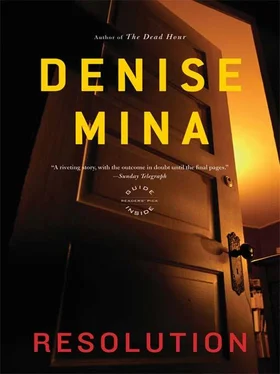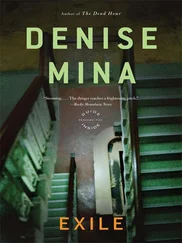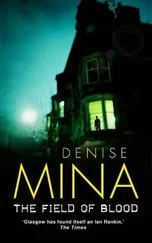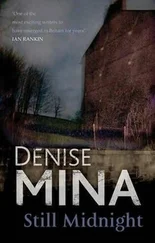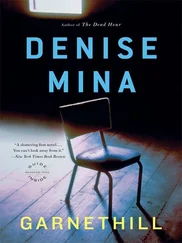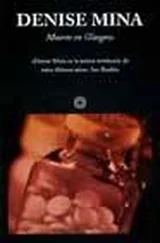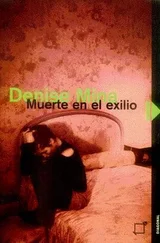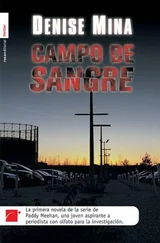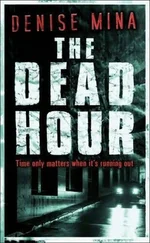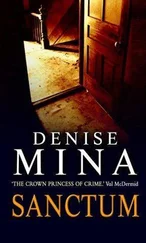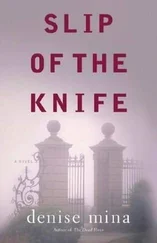"Sorry about that," she said, pretending to care.
He smiled patronizingly. "Well, what's a Glasgow wedding without a fight?"
Kilty sat on a stool at her dad's feet. Maureen and Leslie pulled up small chairs and sat next to her. Their chairs were lower than Mr. Goldfarb's and they settled in front of him like children waiting to be told a story.
"Sure I can't tempt you with a coffee or something?" he said uncertainly.
"Yeah."
Without his bombastic wife Mr. Goldfarb seemed smaller, less certain of everything. Kilty was kinder to him when they were alone, touching his hand and smiling at the sight of him. "Dad," she said, rocking on her stool towards him. "Dad, can we ask you about someone?"
He took a puff on his cigar and held his breath. A ribbon of smoke wormed from the side of his mouth. He exhaled. "Simon McGee?" he said.
Kilty nodded.
"Kay, Mr. McGee was in the year below me at school. I can't imagine what you think he's been up to."
Kilty hummed. "What's his business?"
"He's an estate agent. He has a number of offices in Lanarkshire." He looked at her curiously and flattened the newspaper on his lap. "What have you heard about him?"
Kilty cleared her throat. "That he runs a brothel."
Mr. Goldfarb laughed at that, rolling the tip of his cigar in the ashtray, stray strands of smoke escaping from his nostrils as he breathed out. Now that Maureen thought about it, it did sound like a school-yard taunt. "I don't think Mr. McGee is a madam." He looked at Kilty reproachfully. "Really. Where did you hear that?"
"From his mother."
"The lady who died recently?"
"Yeah."
"Well, she was quite a character by all accounts. A real East End character."
"She wasn't from the East End," said Maureen. "She was from the Gorbals. So's McGee."
Mr. Goldfarb nodded and smiled, as if they had been in agreement all along.
"Is Si McGee's dad Polish?" asked Maureen.
Mr. Goldfarb cocked his head. "I don't know."
"Why's Si in the Polish Club, then? Ella wasn't Polish."
"I'm not sure what his connection is to Poland but there must be one. He even attends services at the Polish chapel."
Kilty shifted on her stool.
Maureen wanted to go; it was obvious that McGee and Mr. Goldfarb were close and there was no way he was going to incriminate his pal. Even if he knew something he would probably avoid saying it to them. "Well," she said, "thanks for talking to us anyway."
"Why are you trying to find out about him?"
"Maureen was friends with his mum," said Kilty, "and she helped her fill in a form for a small-claims action against McGee for unpaid wages -"
"His mother was working for him?"
Kilty looked at Maureen.
"Yeah," said Maureen. She was about to censor the story but realized that she needn't. "Ella said she worked for him, cleaning at the brothel, but he hadn't paid her because they had a falling out about a girl. She was a fit old lady, she could spin on a pin, and then suddenly, just after bringing the case against him, she fell over in her house, smashed her face up and had to go to hospital. She told me she'd fallen and he told the police she was mugged. Her bruises weren't consistent with a fall." She could see Mr. Goldfarb getting annoyed and Kilty and Leslie looking away, disowning the story, but she didn't give a shit. Mr. Goldfarb's life seemed to consist of private-club niceties and big cigars. Even though he was Kilty's dad, Maureen found herself disliking him, as if he were the one who had picked on Ella. She wasn't even keeping her voice down. "Me and Kilty," she continued, and saw him make a mental note of both the grammatical error and the immigrant name, "we went up to her house in Benny Lynch Court and the neighbors wouldn't talk about her."
"There could be a lot of reasons for that. Isn't it a bad neighborhood?"
"Anyway," Maureen said weakly, "Ella was recovering and then I miss a day's visiting and she's dead, of a heart attack, and no one can tell me why a fit old lady would pop off during visiting times in a hospital when her son's there."
Mr. Goldfarb sat back in his chair and tried to smile.
"Did you know his business is going down the tubes?"
"No, no. McGerty's retiring. That's why they're dissolving."
"Isn't it more usual for the other partner to take over when someone retires?"
"Only if they have the money to buy them out. It's not always the way." He waited for her to say something else he could disagree with. "Basically," he said, "there's no evidence of anything, then?"
Leslie and Kilty agreed with him but rather than say that they looked at their hands or at the floor. Mr. Goldfarb chose the glass ceiling, a peach color now that the sun was setting. He looked at Kilty. "Why would you bother with all of this?" It sounded like an argument they'd had a hundred times before.
"Because it's not fair," said Kilty firmly, and pressed her lips together.
Mr. Goldfarb rustled his paper, his expensive cigar dozing off in the ashtray. It was time to leave. Maureen stood up. "Well, thanks for the offer of a drink, anyway," she said.
"I'll tell you something about Si McGee," he said, patting his paper with a flat hand, crumpling the pages. "He's a good man and gives a lot of money to charities." He shook a reproachful finger at the three girls. "More money than you'll ever earn." He seemed to think that their earning a low wage was an affront. "He has pumped money into Eastern Europe, into a scheme to give students, girls like you three, the chance to study in this country. Young people with a future can come over here and extend their education to better themselves, make something of themselves. And he never talks about it, doesn't want it widely known. He gives generously and does so as a modest man should. I don't want any of you blabbing about this."
The three of them were still.
"How do you know that, Dad?"
Mr. Goldfarb was oblivious to the implications of what he had said. "Because he needed a letter of recommendation to the Polish government by a national before he could set up offices there."
Kilty's eyes bulged. "You used your dual nationality and wrote the letter?" she said quietly.
Mr. Goldfarb nodded, and Leslie and Maureen looked at each other. McGee was importing women from Poland. Mr. Goldfarb picked up his cigar and relit it with a slim gold lighter. He looked at Kilty from behind a flaming stub.
"Dad," said Kilty, standing up and handing him the rest of the paper, "you should read more than the business section."
HAPPY-JESUS-GOOD-GUY
It was a warm, still morning. Leslie wasn't well again and didn't feel up to driving the van. The bus pushed through the stagnant yellow air and headed up Springburn hill. Splatters of milky Sunday-morning vomit punctuated the pavement and greedy pigeons picked out the best lumps. It was approaching lunchtime and people were stirring, coming to the shopping center for hangover cures of Irn Bru and fresh rolls, to the newsagent's for Sunday papers and cigarettes.
Springburn Cross was an ugly place without scale; high flats jostled with higher flats on the hill, all looking down to the low-level shopping center and the railway station. Across the valley, ringing the summit of a little hill, a circle of white prefabs with pale blue roofs watched the valley like a defensive encampment.
As they stepped off the bus Maureen and Leslie saw an angry woman across the road pushing a baby stroller, the child inside wearing pajamas. The woman was old before her time, baggy-eyed with thin brown hair hanging loosely about her shoulders. She had a pale blue homemade tattoo, a Charles Manson cross between her eyebrows. "D'ye think she did that herself?" murmured Maureen.
"Ye'd think she'd have the wit to grow a fringe if she didn't," said Leslie.
Читать дальше
